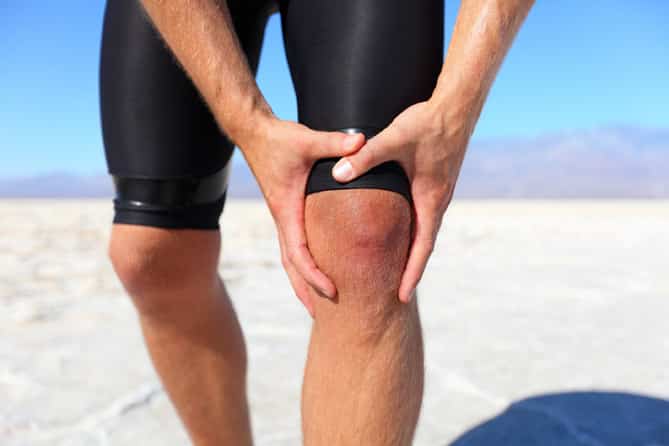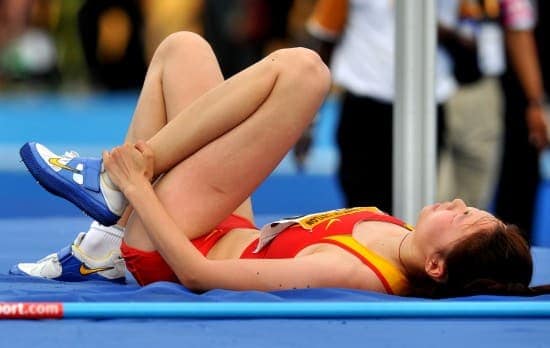Sports injuries occur when you engage in sports. Depending on their severity, they may sideline you from sports for a short or prolonged period of time.
People engage in sports for various reasons. While some do it for fun and physical fitness, others do so to compete and earn a living. However, no matter the purpose for which you engage in sports, the dark side of it, including injuries, may be inevitable. This article explores the top 5 most common sports injuries you may sustain in the activity. Plus, it explains how physiotherapy can be applied in sports injuries’ treatment and sports injury prevention.
Ankle Sprain
It occurs when overstretching during sports forces the ligament that attaches your ankle bones together to tear. When you rapidly shift in movement during sports, your ankle typically bulges outward while the foot moves inwards, causing overstretching and eventual tearing of the ligaments located on the outer side of the ankle. In rare cases, the opposite may happen, causing tearing in the inner ligament. Typically, a sprain to your ankle causes swelling and pain, especially, when you try twisting the ankle.
Although a sprained ankle exposes you to the risk of re-injury, proper post-injury physiotherapy helps to prevent recurrence. Depending on the seriousness of the sprain, the recovery process lasts from a few days to six weeks. Physiotherapy for a sprained ankle involves exercises for strength, motion range, balance, and stretching. The exercises help to:
• Relieve pain and inflammation.
• Regain joint balance and stability.
• Restore full range motion
• Make the calf muscles and ankle stronger.
Runner’s Knee

Also referred to as patellofemoral pain syndrome, it occurs when the cartilage that connects the knee joint and knee cap undergoes irritation and inflammation, leading to a pain that is usually felt at the knee front. The pain can be severe or mild, depending on the extent of the damage. This type of injury may be caused by the following:
• Overuse of the knee during running.
• Muscle imbalances.
• Poor running shoes or insoles.
Treating and preventing this injury through physiotherapy involves avoiding knee bending exercises; replacing running with active recovery including aqua jogging and spinning; reducing the length of your strides; reducing your running mileage to reduce workload on your knee; and taking enough rest after running.
For detailed information about Runner’s Knee, and how can physiotherapy treat it. Please visit the post: Keep Running, without Runner’s Knee
Tennis Elbow

This is a type of injury that results from overloading the elbow tendons due to repeated movements of the arm and wrist. Although it is common among people who play tennis, this injury can also occur in other sports that involve movement of arms and wrists. Tennis elbow causes pain in the wrist, forearm, and forearm muscle tendons. The pain may render your hand unable to:
• Grip something.
• Turn a doorknob.
• Shake hands.
physiotherapy for this injury aims at strengthening your forearm muscles and preventing recurrence. The therapy may involve fist clench, supination using a dumbbell, elbow bend, and wrist turn. Also by using a tennis elbow strap or brace would greatly help the re-injury.
For detailed information about Runner’s Knee, and how can physiotherapy treat it. Please visit the post: Treating Tennis Elbow with Physiotherapy.
Lower Back Pain
This covers a range of conditions resulting from various injuries, including strained muscles, strained ligaments, and bone abnormality. In most cases, pain in your lower back as an athlete occurs due to repeated bending motions. Depending on the amount of damage to your lower back, the pain can be chronic or acute.
To treat and prevent lower back pain using physiotherapy, you need stretching exercises to increase the motion range of your lower back muscles; sit-ups and leg raises to strengthen the lower back; and dynamic stability exercises for strengthening your spine.
Shin Splints
It is pain that is felt along the inner part of the shin bone, which is the front of the lower leg. Shin splints may result from:
• Muscle irritation and inflammation due to overuse.
• Stress fractures in the lower leg bones.
• Overpronation, which is the collapse of the foot’s arch due to footstep impact.
Physiotherapy treatment for this injury involves a series of exercises including single leg heel raise and single leg bridge. These physical exercises are aimed at strengthening your shin muscles and restoring shin motion.
To properly apply physiotherapy in your sports injury treatment and prevention, you need the services of a competent physiotherapist. Pro Fusion Rehab is a multi disciplinary health care center that can help you access such an expert. Based in Milton and Pickering of Ontario, the clinic boasts a highly experienced team of licensed physiotherapists, who are ready to help you in your sports injury prevention and treatment. The staffs assess your injury and recommend a suitable therapy program to help better your situation.
